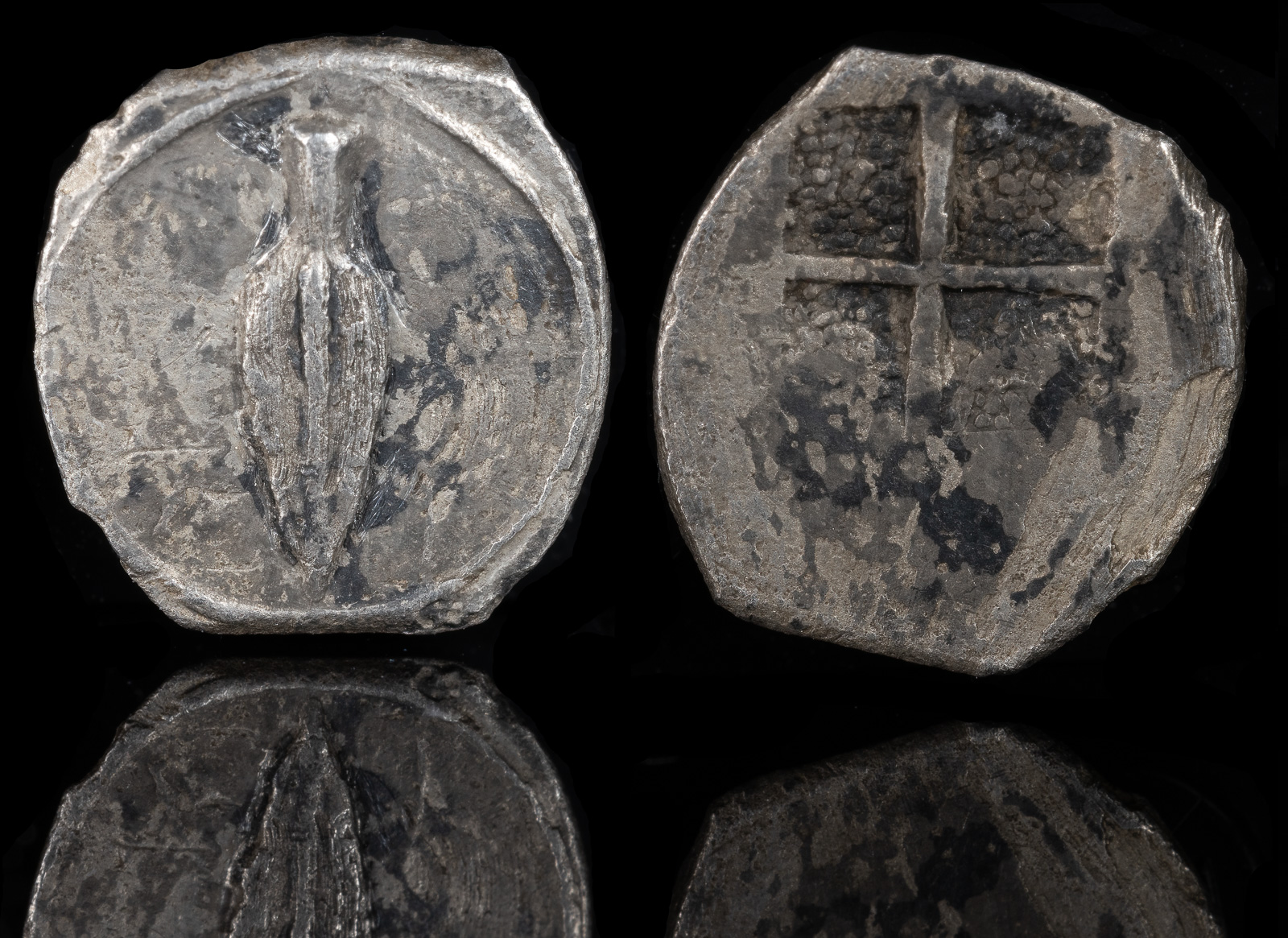
Thraco-Macedonian, Uncertain mint Circa 420 BCE
Silver Hemiobol .30g, 8mm
Spearhead within a circle of pellets.
Quadripart incuse square.
Tzamalis 37
Ex Aegean Numismatics
Alexander I is often credited as the father of the Macedonian kingdom as an independent state. Through much of his rule they were a vassal of Persia, and during Xerxes march against Greece Macedon was on his side.
At numberous instances in Herodotus Alexander serves as an intermediary between him and the Greeks. Yet several times, while announcing the intentions and wishes of the Persians, he also provided advice to the Greeks. Several times he told the Greeks of an imminent attack or provided an alternate route.
When the Persians were defeated and retreating home, Alexander massacred 43,000 of the survivors at the Strymon River.
Perhaps these actions were enough for the Greeks to grant the Macedonian kings the rights to participate in the Olympic games. This was allowed only for Greeks, so their participation was a big deal. Later on, the Olympics would be an important stepping stone for Philip II‘s own hegemony over Greece.
Death of Amyntas I of Macedon. Alexander I becomes king.
Macedon under Alexander I is made fully subordinate to Persia.
September 26
Aegina plays a significant role in the Greek naval victory against the Persian Empire in the Battle of Salamis. Byblos, Arados, Tyre, Halikarnassos under Artemisia, Kos, and Sidon support Darius. Chalkis and Kythnos support the Greek effort. Alexander I serves as a peace negotiator on behalf of the Persians.
Despite being with the Persians, Alexander I alerts the Greeks of the Persian’s plans before the Battle of Platea.
Alexander I takes advantage of the weakened state of the Persian Empire after its defeat in the Persian Wars to expand Macedonian territory. He annexes parts of Thrace and increases his influence over Thessaly.
Alexander I is granted the right to compete in the Olympic Games, an important sign of Macedon’s acceptance into the broader Greek cultural sphere.
Death of Alexander I of Macedon. He is succeeded by his son Perdikkas II.